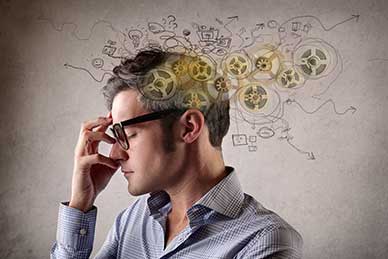Most of us have experienced the feeling of sleepiness and well-being that comes after a large turkey meal (think Thanksgiving dinner). A popular misconception is that this feeling comes from tryptophan, an amino acid that is present in high amounts in turkey. Despite this popular rumor, it’s not necessarily the tryptophan in your turkey that makes you groggy or sleepy. Many experts now believe that the huge number of carbs eaten along with your Thanksgiving turkey are actually the culprit when it comes to post-Thanksgiving fatigue.
However, this does not mean people who actually relish that post-meal food coma should reject turkey for a plate of mashed potatoes. While it may not be responsible for your afternoon nap this Thursday, the benefits of tryptophan can positively impact your health and well-being in other ways.
What Is Tryptophan?
Experts recommend that people eat a diet rich in all of the essential amino acids, including tryptophan. Like other amino acids, tryptophan serves as a building block for the many proteins and hormones we need to perform vital cellular processes and generally be healthy. The exact form of this amino acid used in the human body is L-tryptophan, and luckily that’s the kind also found in many animal foods and supplements. Tryptophan’s most important role in the human body is to serve as a precursor to the biochemicals that sustain good mental health and functioning. Most notably, tryptophan is a building block for serotonin, also known as the “happy hormone,” and thus can improve mood and decrease anxiety. In fact, people who are low on tryptophan are more likely to suffer from depression, anxiety, and other potentially debilitating mental illnesses.
However, the health benefits of tryptophan extend far beyond improving your mood. It is a precursor for several neurotransmitters that help your brain to transmit signals efficiently. It has been found to protect the liver, help heal an inflamed GI tract, and encourage good, quality sleep. It’s important to get enough tryptophan in your diet on a daily basis and not just holidays, so don’t let your Thanksgiving Day feast be your only source of this vital nutrient.
Are You Getting Enough Tryptophan in Your Diet?
 Determining whether you are low on tryptophan is not as simple as getting a blood test. Low levels of tryptophan are not the only reason you may suffer the effects of a deficiency. Some people do not use this amino acid as efficiently as others, while some have higher tryptophan needs that the recommended daily allowance simply doesn’t accommodate. These people may eat plenty of tryptophan-rich foods even while at the same time suffering from a functional deficiency.
Determining whether you are low on tryptophan is not as simple as getting a blood test. Low levels of tryptophan are not the only reason you may suffer the effects of a deficiency. Some people do not use this amino acid as efficiently as others, while some have higher tryptophan needs that the recommended daily allowance simply doesn’t accommodate. These people may eat plenty of tryptophan-rich foods even while at the same time suffering from a functional deficiency.
While turkey is a well-known way to get this essential amino acid in your diet, there are actually many foods that contain tryptophan. You can get some of the benefits of tryptophan from eating poultry, seafood, legumes and dairy products. Because all animals use tryptophan in a similar way to humans, their meat can contain a great deal of this amino acid. However, because it’s often difficult to eat enough tryptophan-rich foods to maintain proper levels of this important amino acid, many people still find that they see tangible health benefits when they take an L-tryptophan supplement.
The Benefits of a Tryptophan Supplement
There are several conditions that have been found to respond well to tryptophan supplementation, even in people who eat a well-balanced diet with ample amounts of this amino acid. These include:
- depression
- bipolar disorder
- insomnia
- premenstrual syndrome
- anxiety
- Seasonal Affective Disorder (SAD)
- migraine
- obesity
- high blood pressure
Because tryptophan is important as a building block of many different hormones and neurotransmitters, increasing your intake can improve your health in a variety of ways. Although the Western diet includes many tryptophan-rich foods, some people simply need more of this amino acid to maintain optimal health and mood. These people may see their health improve when they include a simple supplement in their diet.
While many of us are planning to reap the benefits of tryptophan this fall from Thanksgiving turkey, it shouldn’t be merely an annual event. Getting enough of this essential amino acid is too important to leave it for once or twice a year. Fill your diet with foods rich in tryptophan or consider taking a high-quality tryptophan supplement to ensure that you always have the building blocks you need for good physical and mental wellness.
 According to new research, a vitamin B12 deficiency during pregnancy may have more effects than previously realized. Even babies who are born appearing to be in good health may suffer the consequences over their lifetimes. In one study, vitamin B12 levels were measured in pregnant women and both their and their babies’ health was analyzed. Babies born to mothers with a B12 deficiency had
According to new research, a vitamin B12 deficiency during pregnancy may have more effects than previously realized. Even babies who are born appearing to be in good health may suffer the consequences over their lifetimes. In one study, vitamin B12 levels were measured in pregnant women and both their and their babies’ health was analyzed. Babies born to mothers with a B12 deficiency had  There are yet other ways that the circadian clock and the immune system are linked. The immune system revs up production of immune cells at certain times of day in
There are yet other ways that the circadian clock and the immune system are linked. The immune system revs up production of immune cells at certain times of day in  Have you ever
Have you ever  How can timing the administration of a drug make such a difference? Cancer cells tend to have a circadian rhythm that is different from that of healthy cells. They have often lost many of the checkpoints to growth that are present in healthy cells, which means that they can grow almost continuously. While they may grow faster at certain times of day, they are growing or preparing to do so almost constantly. On the other hand, human cells grow only for very small periods of time during the day.
How can timing the administration of a drug make such a difference? Cancer cells tend to have a circadian rhythm that is different from that of healthy cells. They have often lost many of the checkpoints to growth that are present in healthy cells, which means that they can grow almost continuously. While they may grow faster at certain times of day, they are growing or preparing to do so almost constantly. On the other hand, human cells grow only for very small periods of time during the day. The tradition of turning the clocks back in the fall and forward in the spring
The tradition of turning the clocks back in the fall and forward in the spring